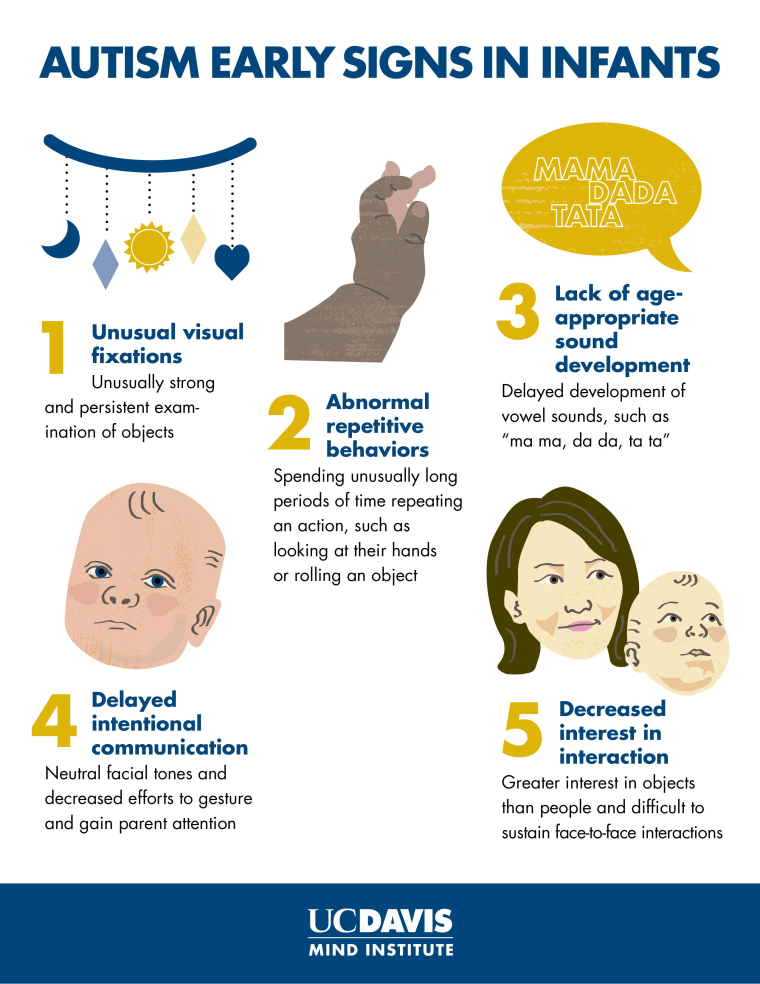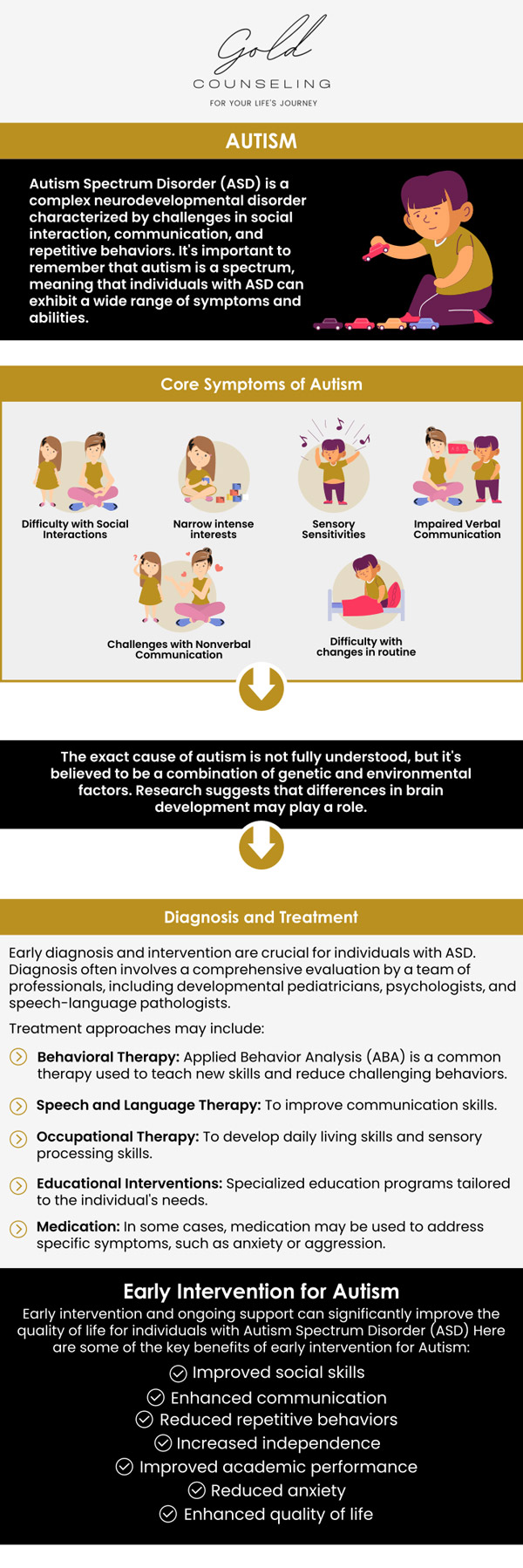How to build real connections with help from an Autism Therapist's insights
How to build real connections with help from an Autism Therapist's insights
Blog Article
Trick Symptoms And Signs to Recognize in People With Behavior Autism
When you run into a person with behavior autism, identifying vital signs and signs is vital. In addition, sensory level of sensitivities can lead to overwhelming experiences.
Obstacles in Social Interactions
When you engage with someone on the autism range, you could notice they have a hard time with social hints and interaction. These obstacles can make social communications feel overwhelming for them.
In addition, you may find that they choose routines and familiar settings, which can restrict their desire to take part in brand-new social scenarios. When they do engage, they may discuss their interests in fantastic detail without discovering if you're interested. This can lead to discriminatory discussions that leave you feeling detached. Comprehending these challenges can assist you come close to communications with compassion and persistence, promoting a more comfortable environment for both of you.
Difficulty With Verbal and Non-Verbal Interaction

Recognizing these indications is essential, as it aids you much better support and involve with people on the autism spectrum. By comprehending their communication challenges, you can foster extra meaningful connections and supply a more helpful environment.
Repetitive Behaviors and Routines
Interaction obstacles typically come with other indications of autism, such as repeated habits and a solid choice for routines. You may discover that people with autism commonly take part in details, repeated actions, like hand-flapping, shaking, or duplicating expressions. These behaviors can supply convenience and a sense of control in a commonly frustrating globe.
When they follow an organized timetable,Regimens are just as vital; lots of people prosper. You might find that adjustments to these routines can bring about considerable distress. As an example, if they have an everyday routine of consuming morning meal at a certain time or complying with a specific course to school, any kind of disruption can create stress and anxiety.
Acknowledging these patterns aids you understand their behavior and offer assistance. By suiting their requirement for routine and permitting repeated actions, you can produce a more comfy environment that eases their obstacles.
Sensory Level Of Sensitivities

Usual Sensory Triggers
Sensory sensitivities can considerably affect day-to-day life for individuals with autism, as specific stimulations commonly trigger overwhelming responses. Common sensory triggers consist of loud noises, brilliant lights, and solid scents. You might observe that sudden sounds, like alarms or alarm systems, trigger anxiousness or distress. Fluorescent lighting in stores can really feel harsh and uneasy. Appearances can also play a significant function; rough textiles or specific food textures may be excruciating for you. In addition, crowded locations can bewilder your detects, making it tough to concentrate or relax. Understanding these triggers can assist you manage your atmosphere much better. By knowing what influences you, you can take actions to decrease pain and boost your day-to-day experiences.
Behavioral Responses Discussed
Comprehending your behavioral feedbacks to sensory level of sensitivities is crucial, as they frequently reveal just how you engage with the world. You might observe that specific sounds, lights, or appearances bewilder you, resulting in anxiety or pain. When confronted with these stimuli, you could withdraw, cover your ears, and even respond strongly. These reactions aren't simply quirks; they're your means of handling overstimulation. You may additionally find on your own looking for certain sensory experiences, like deep pressure or silent environments, to aid ground yourself. Recognizing these patterns aids you comprehend your requirements better and can guide visit this website exactly how you interact them to others. By acknowledging your sensory sensitivities, you can work towards creating an environment that really feels much more comfy and workable for you.
Coping Techniques Introduction
Recognizing your sensory sensitivities is simply the primary step; now it's time to discover coping strategies that can assist you handle those experiences efficiently. Begin by developing a sensory toolkit tailored to your needs. This could include noise-canceling headphones, fidget toys, or soothing aromas. Developing a structured routine can also supply predictability, lowering anxiety around sensory overload. When you feel overwhelmed, take breaks in a peaceful area to regroup. Practicing mindfulness strategies such as deep breathing can help ground you in the minute. Additionally, communicate your needs with those around you; having supportive close friends and family can make a massive distinction. Bear in mind, locating what functions best for you may take some time, so be open and patient to trying new methods.
Limited Rate Of Interests and Focus
While many people establish a wide variety of rate of interests, those with autism commonly demonstrate restricted passions and an intense concentrate on certain topics. You could observe that someone with autism can invest hours diving into their favored subject, whether it's a particular sort of train, a specific movie, or a clinical concept. This extreme focus isn't simply a pastime; it can you can try these out come to be a central component of their identification and social communications.
You might discover that discussions focus on these rate of interests, and they might struggle to participate in broader topics. For them, these concentrated rate of interests supply convenience and a feeling of proficiency. While it's important to encourage expedition of brand-new subjects, appreciating their interests is just as important. By comprehending and recognizing these restricted interests, you can foster an encouraging atmosphere where they really feel valued and recognized, permitting even more meaningful connections and communications.
Psychological Policy Troubles
Individuals with autism usually deal with challenges in psychological law, which can be influenced by their extreme concentrate on specific interests. You may see that when an individual is deeply engaged in a preferred activity, they can experience strong emotions, whether enjoyment or frustration. When things do not go as planned., this strength occasionally makes it tough for them to shift equipments or handle their feelings - Autism Spectrum Therapies.

Variability in Developmental Turning Points
When it pertains to developmental milestones, you'll observe that people with autism typically reveal a broad array of variability. Some might hit turning points promptly, while others could drag or progression at a different rate. You could see a kid stand out in language abilities however battle with social interactions. This incongruity can be complicated, as conventional benchmarks do not always apply.
It's essential to identify that each person's journey is special. Observing these patterns can aid you understand their staminas and needs better.
Frequently Asked Concerns
How Is Autism Identified in Kid and Grownups?
To detect autism in grownups and children, specialists assess behavior, interaction abilities, and social communications. They often utilize standardized tests, meetings, and observations to figure out if a private meets the requirements for autism range problem.
Exist Various Kinds Of Autism Spectrum Disorders?
Yes, there are different sorts of autism range conditions, including Asperger's disorder and prevalent developing disorder-not or else specified. Each type varies in intensity and qualities, so comprehending these distinctions can aid you better assistance people with autism.
What Therapies Work for People With Autism?
When taking into consideration effective therapies for people with autism, you'll find alternatives like Applied Behavior Analysis, speech therapy, and work therapy. Each technique can help improve communication, social skills, and everyday working customized to individual needs.
Can People With Autism Lead Independent Lives?
Yes, individuals with autism can lead independent lives. With the best assistance, abilities training, and resources, you can help them create self-sufficiency, take care of day-to-day jobs, and prosper in different settings, cultivating their self-reliance.
Exactly How Can Family Members Support Loved Ones With Autism?
You can support your loved ones with autism by developing a structured setting, encouraging their passions, exercising patience, promoting communication, and advertising social skills. Commemorate their achievements, no issue exactly how small, and build an encouraging neighborhood.
Although lots of individuals on the autism range can recognize and utilize language, they typically face significant difficulties with both spoken and non-verbal interaction. Acknowledging these indications is important, as it aids you much better assistance and involve with people on the autism range. You may notice that people with autism usually involve in certain, repeated activities, like hand-flapping, rocking, or repeating phrases.Sensory level of sensitivities can significantly affect everyday life for people with autism, as particular stimulations often trigger frustrating responses.When it comes to developing turning points, you'll notice click reference that individuals with autism usually reveal a vast range of irregularity.
Report this page